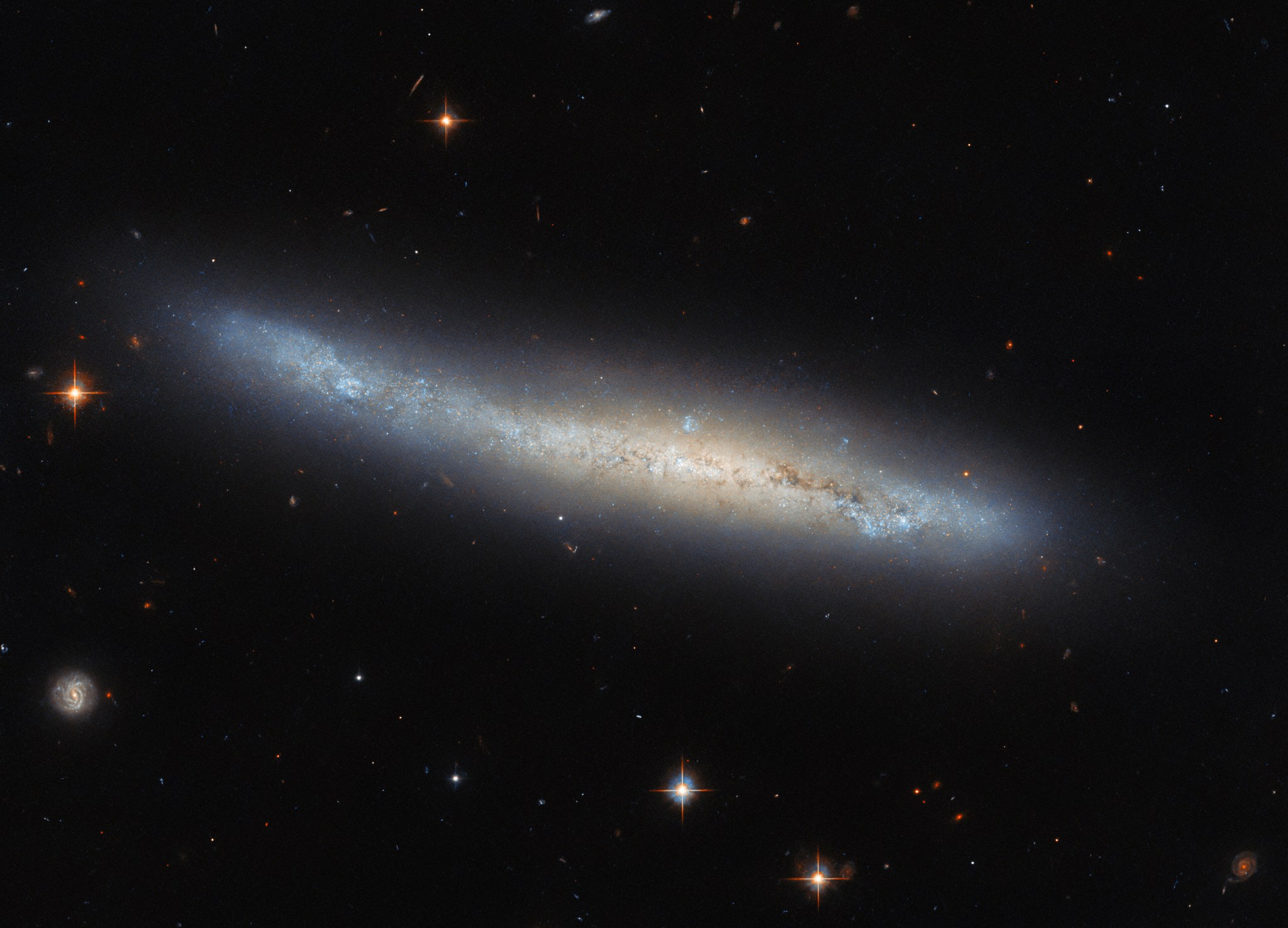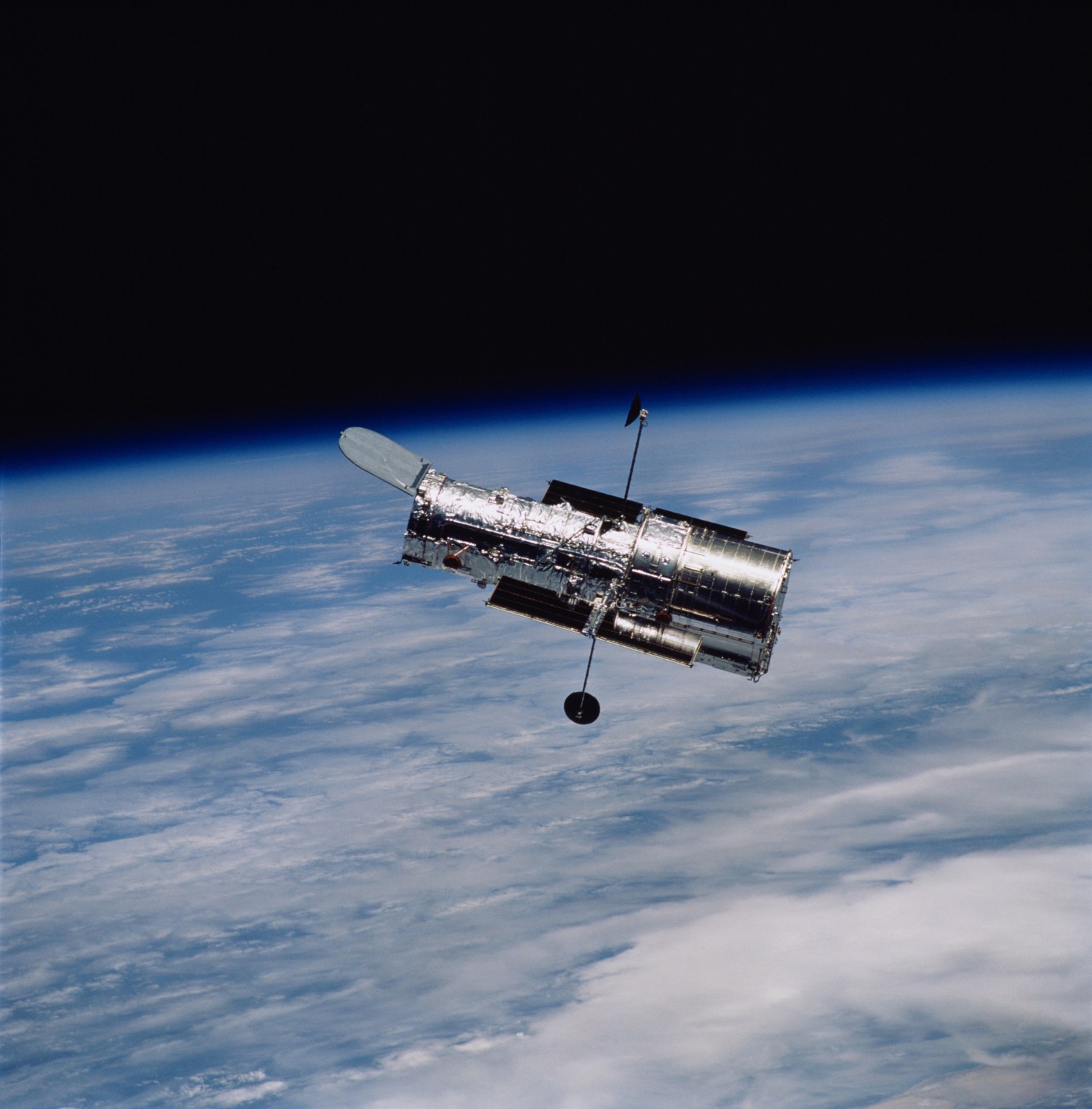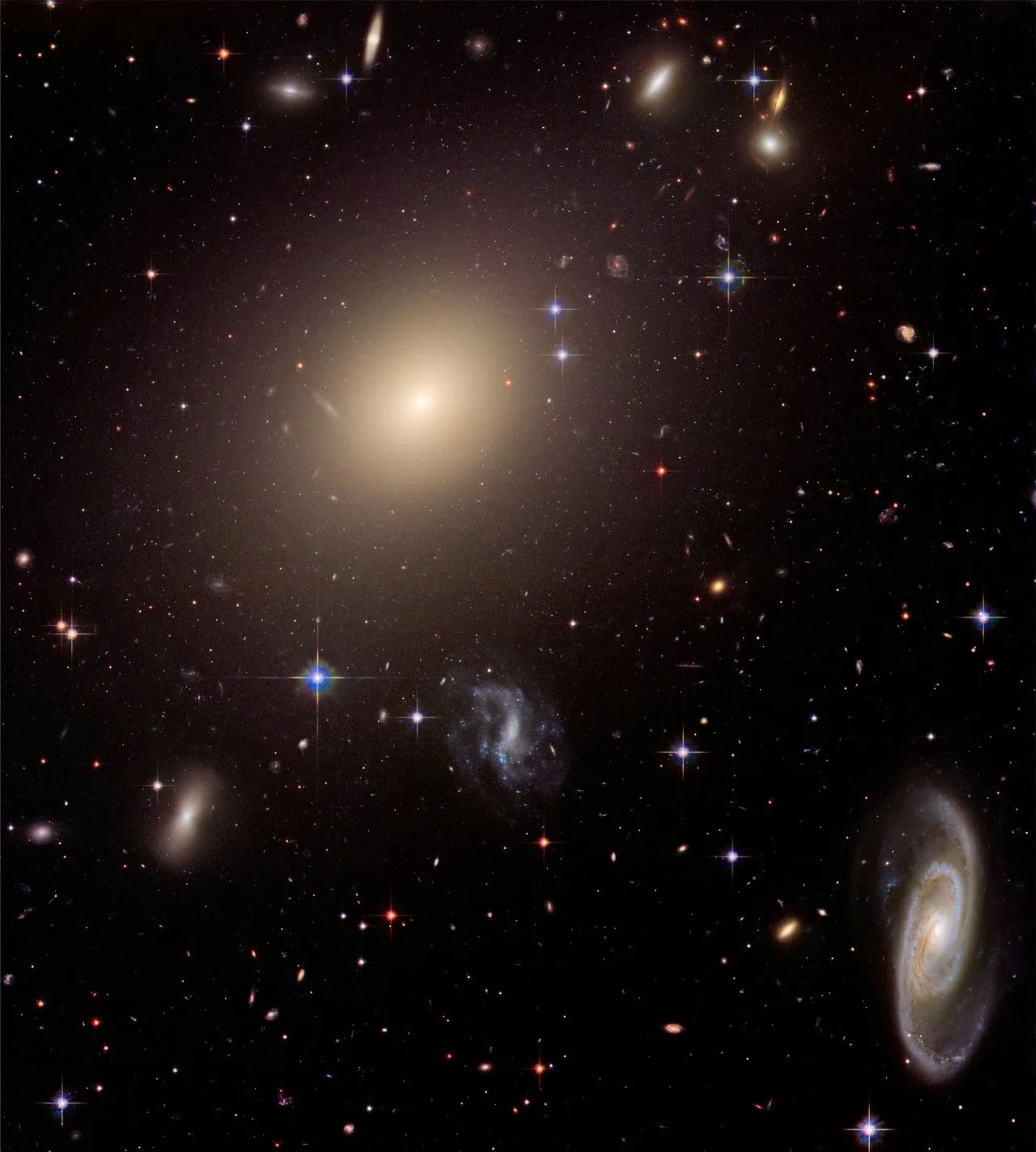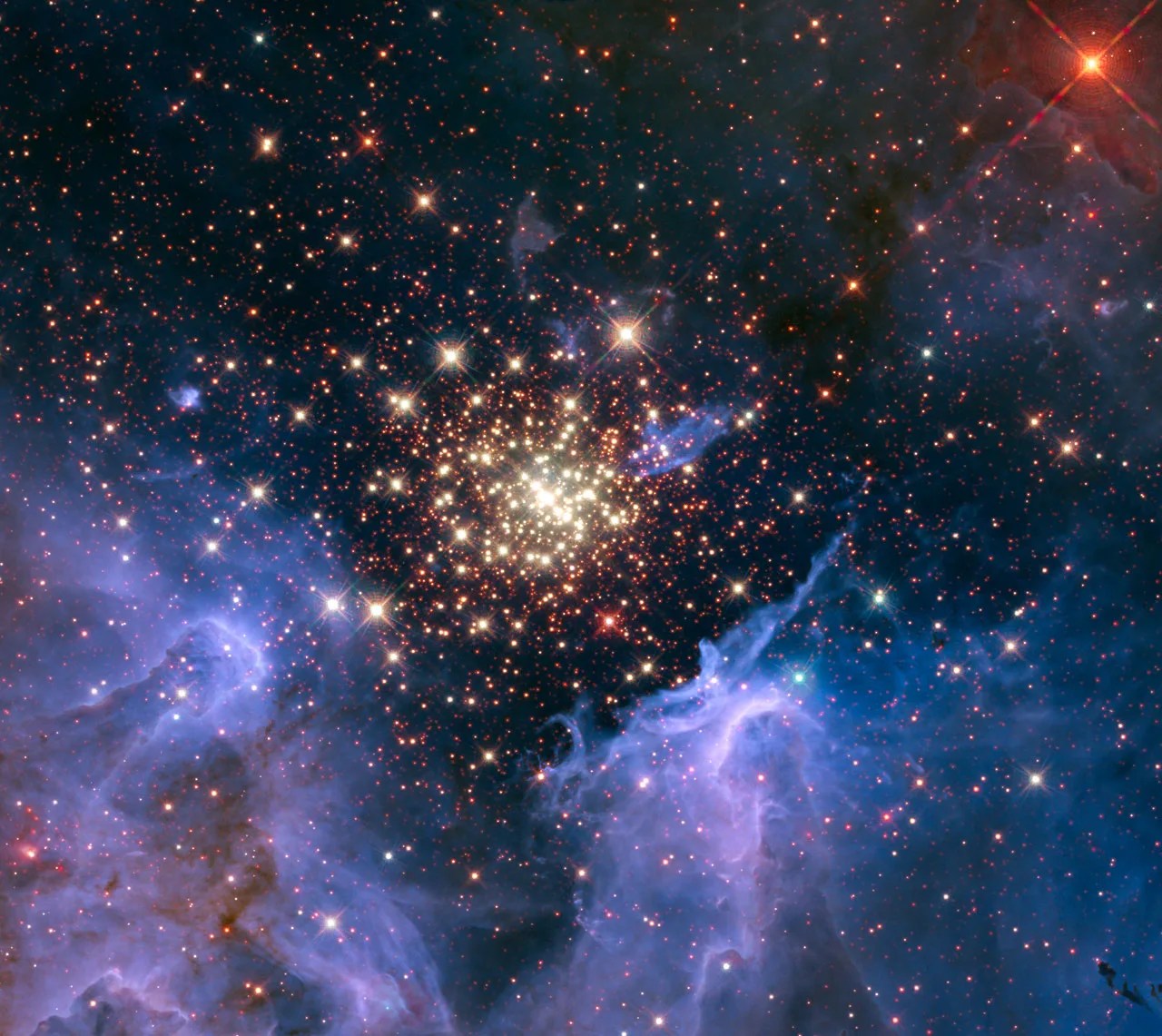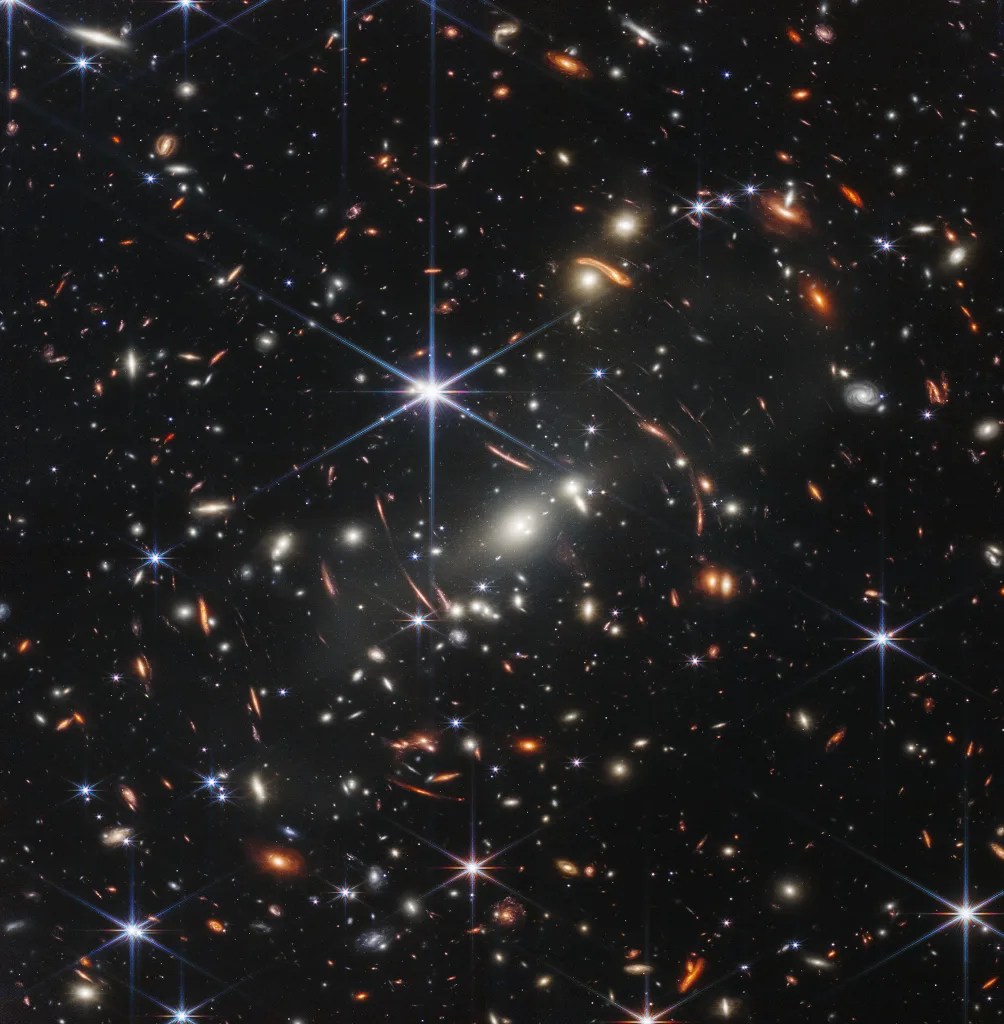This NASA/ESA Hubble Space Telescope image shows NGC 4423, a galaxy that lies about 55 million light-years away in the constellation Virgo. In this image, NGC 4423 appears to have quite an irregular, tubular form, so it might be surprising to find out that it is in fact a spiral galaxy. Knowing this, we can make out the denser central bulge of the galaxy, and the less crowded surrounding disk (the part that comprises the spiral arms).
If NGC 4423 were viewed face-on it would resemble the shape that we most associate with spiral galaxies: the spectacular curving arms sweeping out from a bright center, interspersed with dimmer, darker, less populated regions. But when observing the skies, we are constrained by the relative alignments between Earth and the objects that we are observing.
Text credit: European Space Agency (ESA)
Media Contact:
Claire Andreoli
NASA's Goddard Space Flight Center, Greenbelt, MD
claire.andreoli@nasa.gov





























